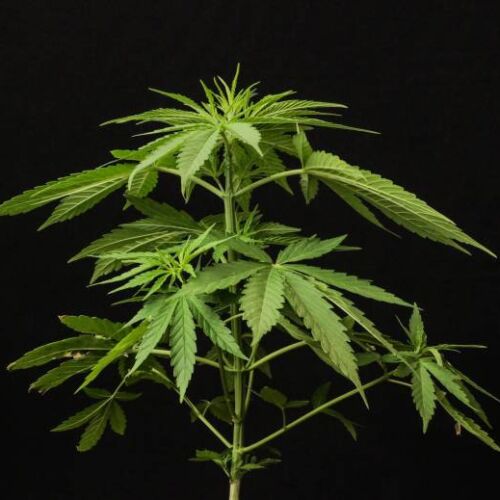Smoking marijuana helps patients give up opiates such as heroin, a new study has found.
Researchers at Columbia University assessed the use of cannabinoids versus a placebo in opioid-dependent subjects undergoing in-patient detoxification and outpatient treatment with naltrexone, an opiate receptor antagonist.
The opioid-dependent subjects undergoing outpatient treatment who used cannabis were more likely to complete their course according to data published online ahead of print in the journal Drug and Alcohol Dependence.
The researchers also found that dosing patients with dronabinol – a drug consisting of the ‘active’ ingredient in cannabis, THC – helped with withdrawal symptoms.
The study authors said, ‘One of the interesting study findings was the observed beneficial effect of marijuana smoking on treatment retention.
Participants who smoked marijuana had less difficulty with sleep and anxiety and were more likely to remain in treatment as compared to those who were not using marijuana, regardless of whether they were taking dronabinol or placebo.
By contrast, patients who consumed herbal cannabis during the outpatient treatment phase were more readily able to sleep, were less anxious and were more likely to complete their treatment as compared to those subjects who did not.
“One of the interesting study findings was the observed beneficial effect of marijuana smoking on treatment retention,” authors concluded.
“Participants who smoked marijuana had less difficulty with sleep and anxiety and were more likely to remain in treatment as compared to those who were not using marijuana, regardless of whether they were taking dronabinol or placebo.”
The findings are consistent with two prior studies, one from 2001 and another from 2009, reporting greater treatment adherence among subjects who consumed cannabis as part of their outpatient therapy.
In addition, overdose deaths involving opioids have increased in recent years. While fewer than 4,100 opiate-induced fatalities were reported for the year 1999, by 2010 this figure rose to over 16,600, according to an analysis by the U.S. Centers for Disease Control.
Population data from states where medicinal cannabis is permitted report lower rates of opioid-abuse and mortality as compared to those states where marijuana is illegal. Clinical data and case reports also indicate that the adjunctive use of cannabis may wean patients from opiates while successfully managing their pain. Survey data of state-qualified medical cannabis patients demonstrates that subjects with access to the plant often substitute it for opioids because they perceive it to possess fewer adverse side effects.
An abstract of the study, “The effects of dronabinol during detoxification and the initiation of treatment with extended release naltrexone,” appears online HERE.


